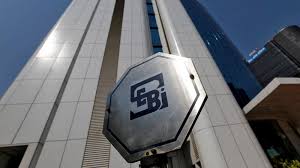SEBI Announces Major Market Reforms to Enhance Investment and Governance

- 18 Sep 2025
In News:
The Securities and Exchange Board of India (SEBI) recently announced a set of comprehensive reforms aimed at improving foreign investment inflows, easing IPO norms for large issuers, strengthening governance in market infrastructure institutions (MIIs), and promoting financial inclusion. These reforms are introduced amid heightened global uncertainty, with foreign portfolio investors (FPIs) withdrawing over ?63,500 crore from Indian markets since July 2025 due to weak earnings, high valuations, and international trade tensions.
SWAGAT-FI: Single Window Access for Foreign Investors
A cornerstone of SEBI’s reforms is the Single Window Automatic &Generalised Access for Trusted Foreign Investors (SWAGAT-FI) framework, designed to simplify investment access for FPIs and Foreign Venture Capital Investors (FVCIs).
Eligibility and Scope:
- Sovereign wealth funds, central banks, regulated public retail funds (mutual funds, insurance companies, pension funds).
- Existing FPIs meeting criteria can migrate to SWAGAT-FI status.
Features:
- Unified registration and KYC cycle, reducing repeated compliance.
- Exemption from the 50% cap on contributions by NRIs, OCIs, and resident Indians.
- Simplified access through the India Market Access portal, reducing regulatory complexity.
- Implementation over a six-month timeline, aiming to restore investor confidence and enhance India’s global competitiveness.
Relaxed IPO Norms for Large Companies
To encourage large issuers to raise capital efficiently:
- Companies with market capitalization of ?1–5 lakh crore must now offer 2.75–2.8% of post-issue market cap, down from 5%.
- Minimum public offer for mega-IPOs raised to ?6,250 crore.
- Public shareholding timeline relaxed: Firms with <15% float at listing get 10 years to meet 25% minimum, and those with ≥15% float get 5 years.
- Anchor investor quota increased from one-third to 40%, reserving one-third for domestic mutual funds and the rest for life insurers and pension funds.
These measures help promoters reduce immediate dilution while facilitating broad investor participation.
Strengthened Governance in Market Infrastructure Institutions
SEBI has introduced structural reforms to improve transparency and accountability in exchanges and clearing corporations:
- Two executive directors appointed to oversee critical operations (trading, clearing, settlement) and regulatory compliance (risk, investor grievances).
- Defined roles and responsibilities for Managing Directors and Key Managerial Personnel to enhance succession planning.
- Scale-based thresholds introduced for material related-party transactions.
- Separate AIF schemes for accredited investors with flexible compliance norms.
Mutual Fund and Retail Investor Reforms
To promote financial inclusion and investor protection:
- Maximum exit load reduced from 5% to 3%.
- Distributor incentives revised to encourage inflows from B-30 cities and women investors.
- Enhanced transparency in investor reporting and compliance requirements.
Significance and Implications
- For India’s markets: Provides operational flexibility for large issuers, simplifies compliance, and reduces procedural hurdles for trusted foreign investors.
- For global competitiveness: Positions India as a stable, long-term investment hub amid capital volatility.
- For retail investors: Encourages broader participation from smaller cities and underrepresented groups, aligning with inclusive financial growth objectives.
Overall, SEBI’s reforms reflect a balance between market facilitation, investor protection, and governance standards, reinforcing India’s ambition to be an attractive, transparent, and globally competitive capital market.
